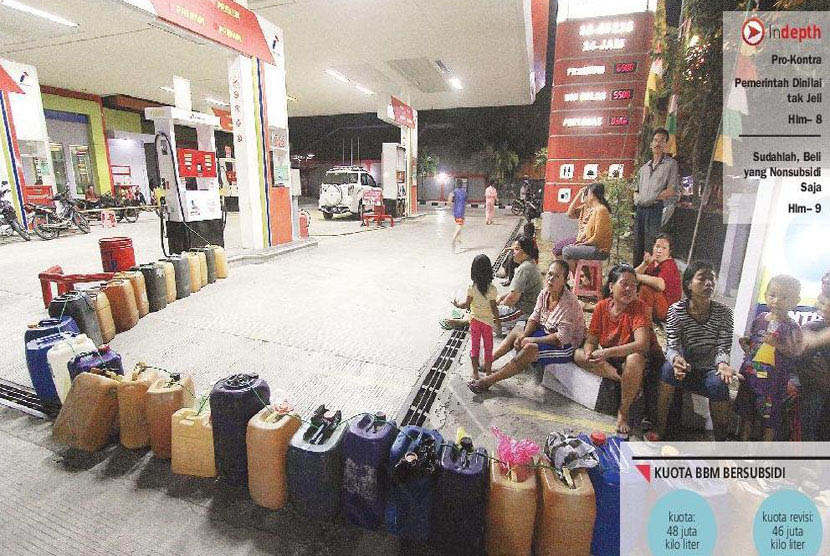REPUBLIKA.CO.ID, JAKARTA - Public panic resulting from rumors of fuel oil scarcity led to queues at fuel refilling stations (SBPUs) in several regions, an official of the state-owned oil and gas firm Pertamina noted.
"It is not caused by fuel scarcity. There are queues at SBPUs because of panic buying," Hanung Budya, Pertamina's marketing and commercial director, stated on Monday.
He pointed out that the long queues had been triggered by misleading rumors being spread among the public.
Budya made the statement after attending a hearing regarding the bill on macro assumption of the 2015 State Budget with Commission VII on Energy Affairs of the House of Representatives.
"The distribution of subsidized fuels at SBPUs is arranged in such a way, so as to adjust it to the prevailing quota," Budya affirmed.
In the meantime, Ali Mundakir from Pertamina remarked on Sunday that there have been queues of customers wanting to buy subsidized fuels at SBPUs due to the distribution arrangement.
"The customers' queues resulted in subsidized fuel running out at SBPUs, and it was not due to scarcity of stocks. It happens because the volume of distribution per day is arranged to maintain the quota, so that it will not run out until the end of the year," Mundakir stated here on Monday.
He explained that the current fuel stocks are at a secure level and adequate to meet the need until the end of this year. Mundakir revealed that Pertamina had been carrying out distribution arrangement on subsidized fuels since August 18 based on the daily average quota for every SBPU.
The arrangement of subsidized diesel oil and premium gasoline distribution has been carried out to ensure that diesel oil and premium gasoline stocks will last until the end of 2014. The Revised 2014 State Budget stipulates that the subsidized fuel allocation should be reduced from 48 million kiloliters in the previous budget to 46 million kiloliters per annum.
Mundakir remarked that with the deduction of the fuel quota, there will only be two options. The first option is to distribute subsidized fuels in a normal way with the consequence of the stocks running out before the year end. The other option is to arrange daily distribution, so that the subsidized fuel quota will not run out before the end of 2014.
"With this arrangement, we hope that the people who own private cars will be aware of the policy and begin consuming non-subsidized fuels," Mundakir added.


